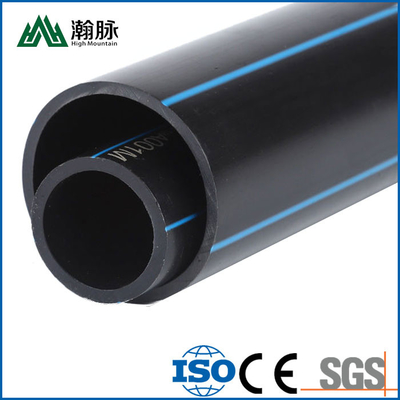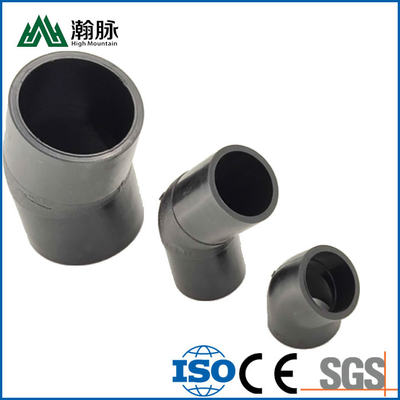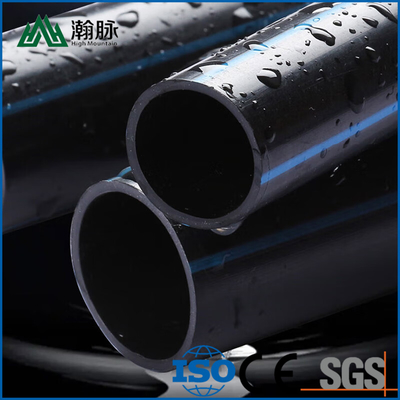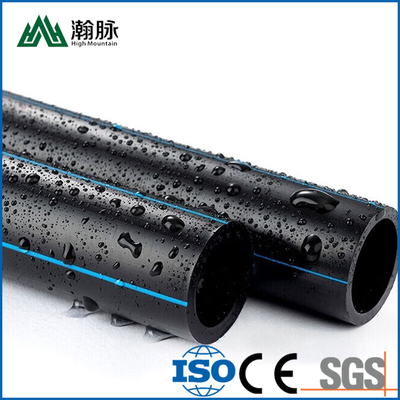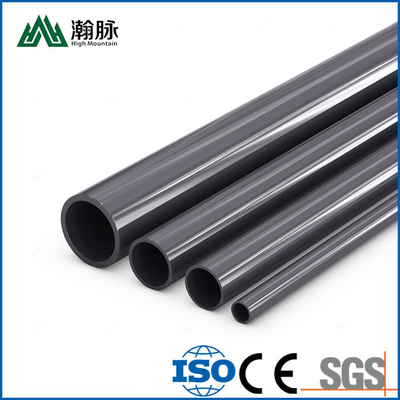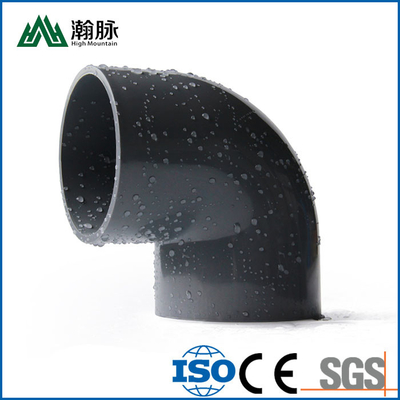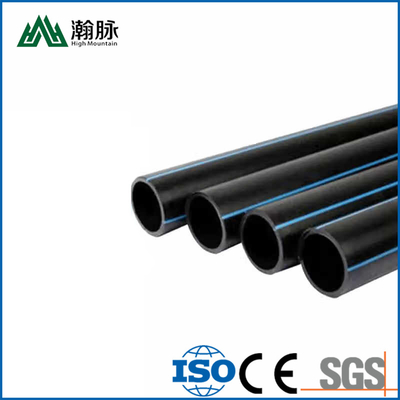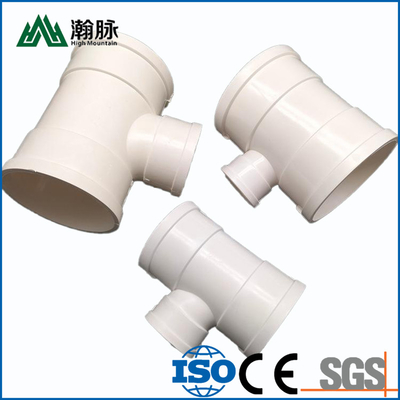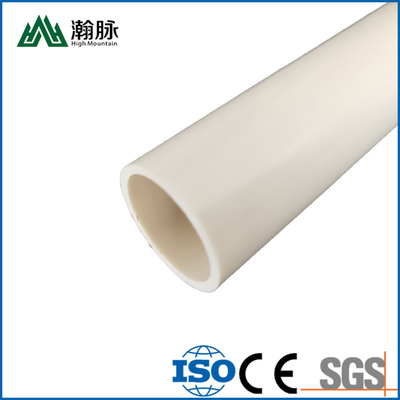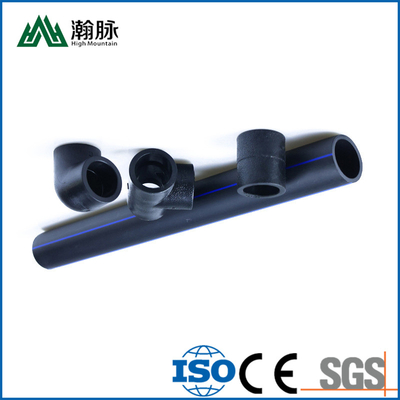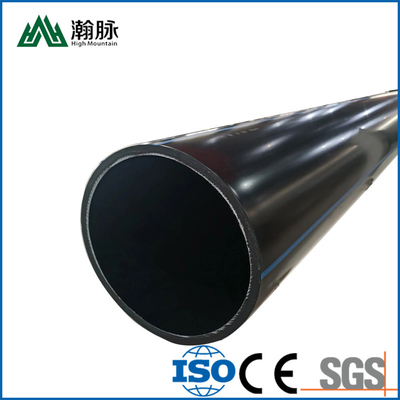Introduction: In the dynamic landscape of contemporary infrastructure, the selection of materials is pivotal for ensuring the efficacy, safety, and sustainability of diverse systems. High-Density Polyethylene (HDPE) pipes have emerged as a preeminent choice for water distribution systems, owing to their exceptional properties. This comprehensive article delves into the safety of HDPE pipes for drinking water, their suitability for hot water applications, the methods employed for joining HDPE pipes, and their versatile applications in modern construction endeavors.

Unveiling HDPE Pipes: High-Density Polyethylene (HDPE) stands out as a thermoplastic polymer renowned for its remarkable strength-to-density ratio, rendering it an ideal material for pipe manufacturing. Also known as PE pipes, HDPE pipes have garnered widespread acclaim in the construction and water management sectors due to their outstanding durability, flexibility, and corrosion resistance. Let's explore the pivotal aspects surrounding HDPE pipes.
Is HDPE Pipe Safe for Drinking Water?
 Ensuring the safety of materials used in water distribution systems is paramount. HDPE pipes, deemed safe for transporting drinking water, adhere to stringent regulatory standards. The inert nature of the material ensures no reactivity with conveyed water, preventing contaminants from leaching into the water supply. The safety of HDPE pipes is underscored by their resistance to biological growth, making them an optimal choice for upholding water quality. The smooth inner surface of HDPE pipes inhibits deposit accumulation and bacteria growth, ensuring a pristine and secure water supply for consumers.
Ensuring the safety of materials used in water distribution systems is paramount. HDPE pipes, deemed safe for transporting drinking water, adhere to stringent regulatory standards. The inert nature of the material ensures no reactivity with conveyed water, preventing contaminants from leaching into the water supply. The safety of HDPE pipes is underscored by their resistance to biological growth, making them an optimal choice for upholding water quality. The smooth inner surface of HDPE pipes inhibits deposit accumulation and bacteria growth, ensuring a pristine and secure water supply for consumers.
Can HDPE Pipe Be Used for Hot Water?
HDPE pipes exhibit commendable thermal properties, making them suitable for a broad temperature range. Capable of handling both cold and hot water, HDPE pipes showcase versatility in water distribution systems. The material remains robust and resilient even under elevated temperatures, establishing HDPE pipes as a reliable choice for transporting hot water. Their thermal properties confer distinct advantages in applications where transported water temperatures fluctuate, be it in residential plumbing systems or industrial processes requiring hot water.

How Are HDPE Pipes Joined?
The joining of HDPE pipes is a pivotal facet of their installation process, with proper joints being imperative for pipeline integrity and longevity. Several methods are employed for joining HDPE pipes, each offering unique advantages based on project-specific requirements. Butt Fusion: This method entails fusing pipe ends using a specialized butt fusion machine. The heated ends are pressed together, creating a seamless and leak-proof joint, commonly employed for larger diameter pipes due to its strength and durability. Electrofusion: Involving fittings with integrated heating elements, electrofusion creates a robust joint when an electrical current is applied, making it convenient for joining pipes of various sizes, especially in confined spaces. Socket Fusion: Similar to butt fusion but for smaller diameter pipes, socket fusion involves heating the pipe and fitting, pressing molten material together to form a secure joint. Known for its simplicity, socket fusion finds common usage in residential plumbing applications. Mechanical Connections: HDPE pipes can also be joined using mechanical connections such as compression fittings or flange adapters, offering flexibility and ease of installation for specific applications.
What Is HDPE Pipe Used For?

The versatility, durability, and corrosion resistance of HDPE pipes make them indispensable in various sectors. Water Distribution: HDPE pipes are extensively used in municipal water systems and residential plumbing, offering corrosion resistance and a smooth inner surface for efficient water flow. Sewer Systems: Resistant to chemical corrosion and abrasion, HDPE pipes play a vital role in sewage and wastewater systems, ensuring the transport of effluent without degradation. Gas Distribution: HDPE pipes provide a reliable and durable solution for distributing natural gas, with resistance to cracking and brittleness ensuring network safety. Industrial Applications: In industrial settings, HDPE pipes transport fluids, including chemicals and abrasives, owing to their durability and resistance to chemical corrosion. Mining: HDPE pipes, robust and resistant to abrasion, find application in mining for transporting slurries, chemicals, and water under challenging conditions. Agricultural Irrigation: Widely used in agricultural irrigation systems, HDPE pipes efficiently distribute water to crops, showcasing flexibility and resistance to UV degradation.
Conclusion: High-Density Polyethylene (HDPE) pipes have become integral components of modern water distribution systems, offering a reliable and sustainable solution for various applications. Their safety for drinking water, versatility in handling hot water, effective joining methods, and diverse range of applications highlight the numerous advantages of HDPE pipes. As the construction and water management industries continue to evolve, HDPE pipes stand out as a resilient and forward-looking choice for ensuring the efficiency and longevity of infrastructure projects.

 Your message must be between 20-3,000 characters!
Your message must be between 20-3,000 characters! Please check your E-mail!
Please check your E-mail!  Your message must be between 20-3,000 characters!
Your message must be between 20-3,000 characters! Please check your E-mail!
Please check your E-mail! 
